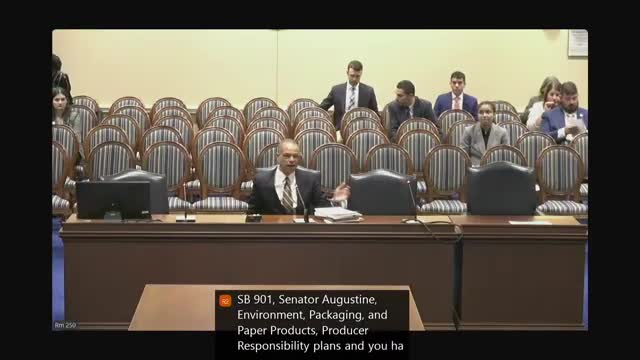Article not found
This article is no longer available. But don't worry—we've gathered other articles that discuss the same topic.

Environment and Transportation committee hears several short bills, including school-board ethics certification and transportation crossfiles

Maryland committee hears debate on SB901 to create extended producer responsibility program for packaging and paper

